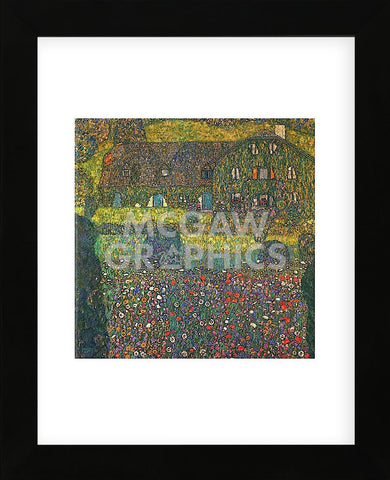Product Detail
- Overall: 16" H x 13" W x 0.75" D
- Overall Product Weight: 2.5lb.
- Material: Glass
- High-quality print on heavy paper
- Printed with vibrant, color-fast inks
- Framed in a contemporary style molding; available in black, gold, and white
- Sawtooth hanger
- Unmatted
Image is Copyrighted and Property of its respective owner
Product Detail
- Overall: 16" H x 13" W x 0.75" D
- Overall Product Weight: 2.5lb.
- Material: Glass
- High quality print on heavy paper
- Printed with vibrant, color-fast inks
- Framed in a contemporary style molding; available in black, white, and gold
- Sawtooth hanger
- Unmatted
About the Artist
Klimt’s highly decorative, erotic female figures were influenced by an enormous range of sources: classical Greek art, Byzantine mosaics, late-medieval painting, the woodcuts of Albrecht Durer, photography and the Symbolist art of Max Klinger. As a co-founder of the Vienna Secession, a group of artists and architects who formed their own exhibition society and denounced the classical academic training of the time, his work embodied the high-keyed erotic, psychological and aesthetic preoccupations of fin-de-siècle Viennese intellectuals.
Klimt was born in Baumgarten, a suburb of Vienna. His interest in art was nurtured by his father, an engraver. His formal training began at the Kunst-gewerbeschule in Vienna, and later he worked as an artist-decorator in association with his brother. The primal forces of sexuality, regeneration, love and death form the dominant themes of Klimt’s work. In The Kiss, Klimt’s best known work, beautifully rendered figures float dreamlike in space, wrapped in an abstracted mosaic robe that veils graceful contours. The rhythmic flowing line and organic forms of Klimt’s unparalleled paintings became powerful influences on the Art Nouveau movement.





